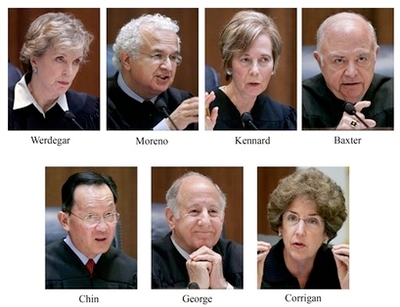ISKCON Vows to Fight LA Airport Ban on Soliciting Donations
By Madhava Smullen | Apr 02, 2010

Amarendra Dasa, a lawyer representing ISKCON, has vowed to challenge a March 25th ruling by the California Supreme Court that bans Hare Krishna devotees and other groups from soliciting donations at Los Angeles International Airport (LAX).
Written by Justice Carlos Moreno, the unanimous decision upholds a 1997 city ordinance that made it illegal to seek donations inside airport terminals, parking areas and along adjacent sidewalks.
The ordinance had been put on hold under a temporary injunction by a federal court after ISKCON sued, on the grounds that it violated constitutional rights to free speech. But Los Angeles City officials are now planning to ask that the injunction be lifted. If that happens, devotees soliciting donations for their books could face six months in jail and a $1,000 fine.
For now, book distributors can continue to accept donations. And if the ordinance is put into play, although they will be barred from receiving cash and checks on airport property, they will still be free to speak to travelers and ask them to send in donations later. But Amarendra, who has represented ISKCON in major court cases since 1982, is ready to fight for more rights.
“In a similar case regarding New York airport in 1992,” he says, “The Court banned solicitations inside the terminals, but allowed us access to the sidewalks outside the airport—the judge said that since 97% of all passengers had to use those at one time or another, this was an adequate alternative channel of communication for us. But this ruling goes too far and violates federal law by barring solicitation everywhere, including sidewalks.”
And that’s not the only shortcoming to the way the California Supreme Court handled the case, Amarendra feels.
“It failed to answer a critical question assigned to it by the US Ninth Circuit Court of Appeals, the Federal Court that will give the final judgement on our case,” he explains. “Which was, is LAX a public forum under the free speech clause of the state Constitution? Instead, it jumped straight to the second question assigned to it—was the 1997 ordinance valid?—and ruled that it was, without providing a proper framework for this decision.”
Usually, the Ninth Circuit simply rubber stamps decisions made in the California Supreme Court. But in light of the mistakes made in handling this case, Amarendra says that when it returns to the Ninth Circuit he will ask the federal judges to disregard California’s ruling and come to their own conclusion.
“The California Supreme Court made some major mistakes, which shouldn’t go unchallenged,” he says. “We will try to get the sidewalks outside the airport allotted to us for book distribution just as we did in New York. We will also try to get the Ninth Circuit Court to come to a decision on the public forum question.”
There is also a very fragile foundation beneath the city’s case against devotees soliciting donations in LAX, Amarendra feels. He says that it’s simply a question of image—approaching people in a public place for money looks bad in modern culture. He also says that other groups not behaving themselves as well as devotees have made the situation worse for ISKCON.
“There are other groups soliciting at the airport who will go up to anybody, anywhere, and hit them up for a donation while misrepresenting their purpose,” he explains.
The negative and aggressive tactics admittedly used by devotees in the 1970s, however, were ceased twenty-five years ago and replaced with internally implemented regulations that lowered the number of complaints dramatically.
“If somebody says no, devotees leave them alone and move on to the next person,” says Amarendra. “We don’t approach people in ticket lines or security lines, we don’t bother them while they’re getting their baggage or while they’re in the food court; and of course, we’re always offering something of value, our spiritual books—we never just ask someone for a donation without first giving them a book.”
At the end of the day, the facts speak for themselves. While contesting the LAX ordinance in the mid 2000s, Amarendra asked the City of Los Angeles to present complaints made by airport travelers against ISKCON book distributors. “Between the years 2002 and 2005, only twelve people had complained,” he says. “Twelve out of the three hundred million that passed through the airport during that time frame.”
While many newspapers have reported the California Supreme Court ruling as final, ISKCON will continue to challenge the decisions made there and the final judgement will be given when the case returns to the Ninth Circuit Court of Appeals, at an as-yet unconfirmed date.















